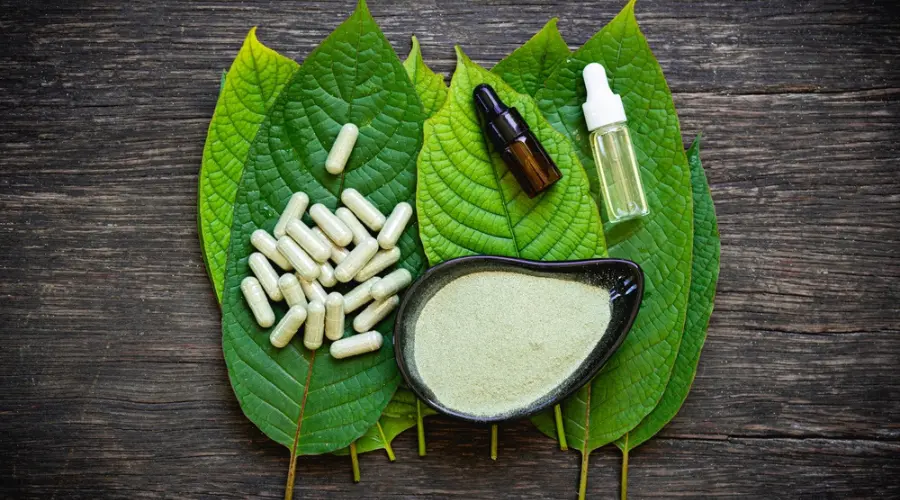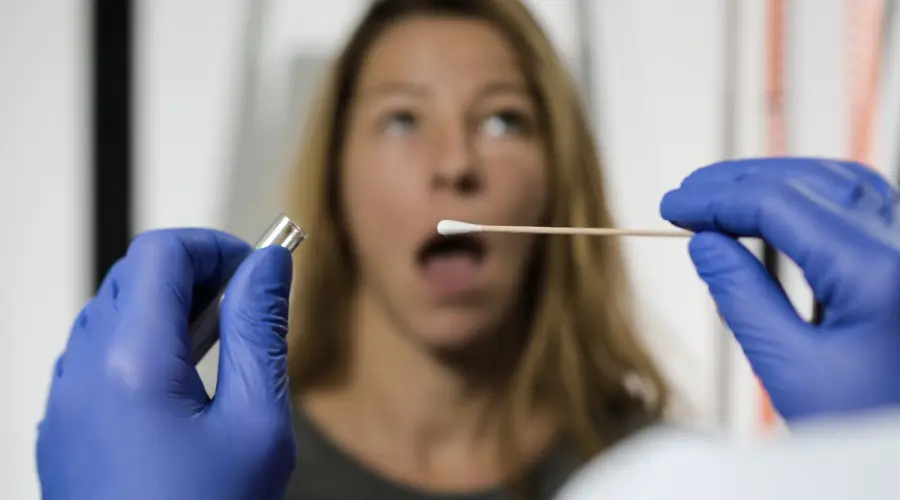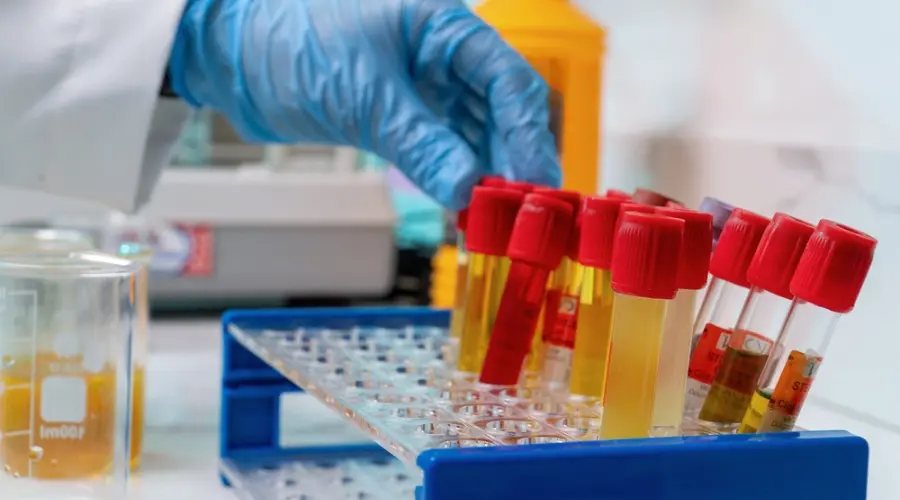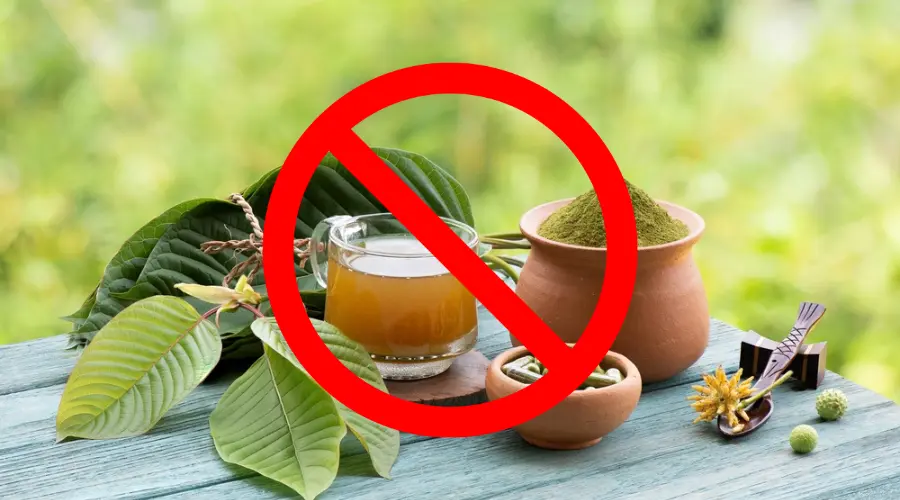Know the Detection Times for Kratom and Get Treatment Options
Let’s get the question and answer addressed quickly. Does kratom show up on a drug test? No, in most cases, standard drug tests won’t trigger a positive for kratom detection. However, specialized tests like gas and liquid chromatography can detect kratom with accuracy, so please keep reading to learn more.
We’ll answer that question in more detail throughout this helpful article, along with sharing useful resources that will help you determine what factors affect the detection of this substance during standard drug tests.
More than 2 million people in the United States are using a dangerous substance that is not legal. In February 2024, the University of Connecticut published a report announcing this fact. Not only that, the report revealed that the banned substance is none other than kratom.
Kratom and the more dangerous OPia Kratom are popular for having the same opioid-like stimulant effects and is, therefore, commonly used by many to treat opioid dependence. However, unlike any opioid, too much of it can also lead to an addiction. In fact, the FDA has already warned the US population of that. For someone enlisting in the military or even performing a routine drug test administered by authorities of any kind can lead to that same question: Does kratom show up on a drug test?
What is Kratom?
Let’s start with understanding what kratom is. It is a “tropical evergreen tree”, as Google puts it, that is native to Southeast Asia. Its scientific name is “Mitragyna speciosa”, shortened to kratom.
The leaves of this tree contain a certain chemical that works like opioids do – similar to morphine or Dilaudid, for example. That chemical is “mitragynine”, which binds to the opioid receptors in the brain and leads to hyperactivity in the sympathetic nervous system (SNS).
The National Institute on Drug Abuse (NIDA) confirms that in a detailed study. It goes on to share that kratom has the same pain-relieving effects like opioid drugs do. In the same way, it also has some of the same serious side effects as common opioids.
What Are the Active Compounds in Kratom?
The main compounds are mitragynine and 7-hydroxy-mitragynine. Scientists call them “kratom alkaloids” which bind with the opioid receptors in the brain. These compounds send the SNS into a “high-alert” and “high-energy” state.
But that happens in lower doses. However, when a healthcare professional prescribes or administers kratom in higher doses, it can lead to sedation and pain relief.
When Do People Use Kratom?
The most common reason behind using kratom is to fight the withdrawal symptoms of other opioids. These typically include heroin, morphine, and a lot of other opioid drugs. It can also relieve symptoms like:
- Depression
- Cough
- Anxiety
- Nausea
- Insomnia
- Mood swings
Although there is limited scientific evidence to support such benefits, the existing studies do confirm that it may have some beneficial effects of kratom (in moderation). What’s more important is that seven states and several Counties have banned kratom in the US.
Does Kratom Show Up On a Drug Test?
No, kratom does not typically show up on a test. But it can in some cases and with some testing methods. As long as it is a standard 5-panel or 10-panel drug test, it won’t show up. In fact, these tests are more specifically targeted for the detection of the following:
- Amphetamines (like meth)
- Marijuana
- Opiates
- Cocaine
There are more specific tests out there for detecting kratom. So unless those tests are what you’re looking forward to, there might be nothing serious to worry about.
What Happens in Specialized Testing?
There are specialized tests for detecting kratom abuse. Such tests target specific alkaloids and kratom metabolites to detect the substance in an individual’s system. More importantly, some experts refer to them as “advanced tests” as most of them include chromatography techniques. Here are a few examples to help you understand better:
- Gas Chromatography-Mass Spectrometry (GC-MS)
- Liquid Chromatography-Mass Spectrometry (LC-MS)
- High-Performance Liquid Chromatography (HPLC)
- Immunoassay Tests
- Targeted Metabolite Assays
While these tests are more accurate for kratom detection, they are also quite expensive. Moreover, these tests help professionals detect traces of mitragynine and 7-hydroxy-mitragynine.
What If There Are False Positives?
You shouldn’t worry about false positives because they are a common occurrence in drug testing. In fact, there are numerous examples out there, including the mention of “false positives” in urine tests according to NIDA.
But since standard drug tests don’t detect kratom, it could be other substances that may lead to a false positive. So, if you suspect that there is a false positive and are confident of your drug-free status, you should request a more specific test.
What Types of Drug Tests Can or Cannot Detect Kratom?
To help you understand better, we also wanted to share some of the most common types of drug tests here in the United States. While these are highly common around the world as well, they aren’t always routine tests for detecting kratom – as we discussed earlier.
Urine Test
Many employment and legal settings demand these tests. They are very effective at detecting a variety of substances. However, there is still the need for a specialized panel when it comes to detecting kratom.
Saliva Test
Most common for on-the-spot testing, saliva tests are even less effective for detecting kratom.
Blood Test
Although blood tests are less common for routine drug testing, they are effective at detecting kratom. Such tests can accurately detect metabolites with specific testing parameters too.
Hair Follicle Test
Even though hair follicle tests are rarely used for detection, they have a longer detection window (discussed more below). However, they are also less likely to be used for detecting kratom.
What to Know About the Detection Times of Kratom?
What’s more important than knowing the different types of drug tests is the detection time of kratom – or the detection window, as some call it. Of course, this depends on a range of factors such as the frequency of dosages, metabolism, and so on.
Urine Test
This test can detect kratom in urine for about 1 to 7 days after use. But if there’s chronic or heavy use, the detection might come early.
Blood Test
The blood tests are more effective because they generally detect kratom in the blood within 24 to 48 hours.
Saliva Test
The detection time in saliva tests is similar to blood tests, i.e., 24 to 48 hours. However, the detection time window can be anywhere from 1 to 3 days.
Hair Tests
As discussed earlier, hair follicle tests are less common for kratom detection. However, these tests can detect kratom for up to 90 days.
What Are the Factors that Affect Kratom Detection?
Consider this: if you have taken higher doses of kratom not so long ago, the chances of kratom appearing on the drug test reports are high.
Furthermore, there are a few more factors that affect kratom detection.
- Dosage and Frequency– Higher and more frequent doses stay in your system for longer
- Metabolism– A faster metabolism can get rid of kratom from the system more quickly
- Detection Window– Some tests have a higher detection window (up to 90 days) while some have only a few days (1 to 3 days)
Why Is It Important to Screen for Kratom Through Drug Tests?
The question of whether kratom or the more concentrated Kraken Kratom will show up on a drug test is one that is highly important to those struggling with addictions or SUDs. If you or a loved one is on the path to recovery from chronic drug abuse disorders, knowing the answer to such questions can help you plan for the future.
For Employment and Other Legal Considerations
You have completed your rehab program and are on your way to a brighter, healthier future. So, when searching for a job, you should know that many employers perform routine drug testing. This is to ensure legal compliance – depending on state or County laws – and to maintain a safe and healthy work environment.
Considering that, you should know the detection window of kratom in routine drug tests. This will help you avoid any unintended complications in case the test results come back positive. Even though you’re opioid-use-free or on your way to complete recovery, an unexpected positive test result could impact your employment opportunities.
For Regulatory and Legal Implications
As we mentioned earlier, it is slightly encouraging to know that the government and relevant authorities are taking action against the misuse of kratom, among many other opioids. Some states and local jurisdictions even have kratom on their “banned substance” lists.
While some places are strictly regulating the sale, distribution, and use of kratom, others are proactively restricting its sale to curb misuse. In such areas, if you test positive for kratom, there could be legal consequences.
You might have to face fines or penalties. In serious cases, there could be more severe legal complications. But knowing when and how kratom might appear in a drug test, you can prevent such mishaps and continue your path to a fuller, more satisfying recovery. Also, try to confirm “is kratom legal where I live” to make better treatment decisions.
Put Kratom Drug Test Concerns in the Past and Get Support to Quit
So, kratom will not show up on a drug test if it is a standard drug test. However, if it is a specialized drug test, then the chances of kratom detection will increase. Several factors, like the dosage frequency, metabolism, and other individual factors, may or may not lead to premature detection.
Regardless, your or your loved one’s road to recovery is a valuable one. While treating substance abuse of any kind, you should get personalized care and professional guidance at a facility like ours.
At South Shores Detox & Recovery in Orange County, you can request a confidential consultation and get help. We care for you and will provide accredited services to get you on the road to lasting recovery!





